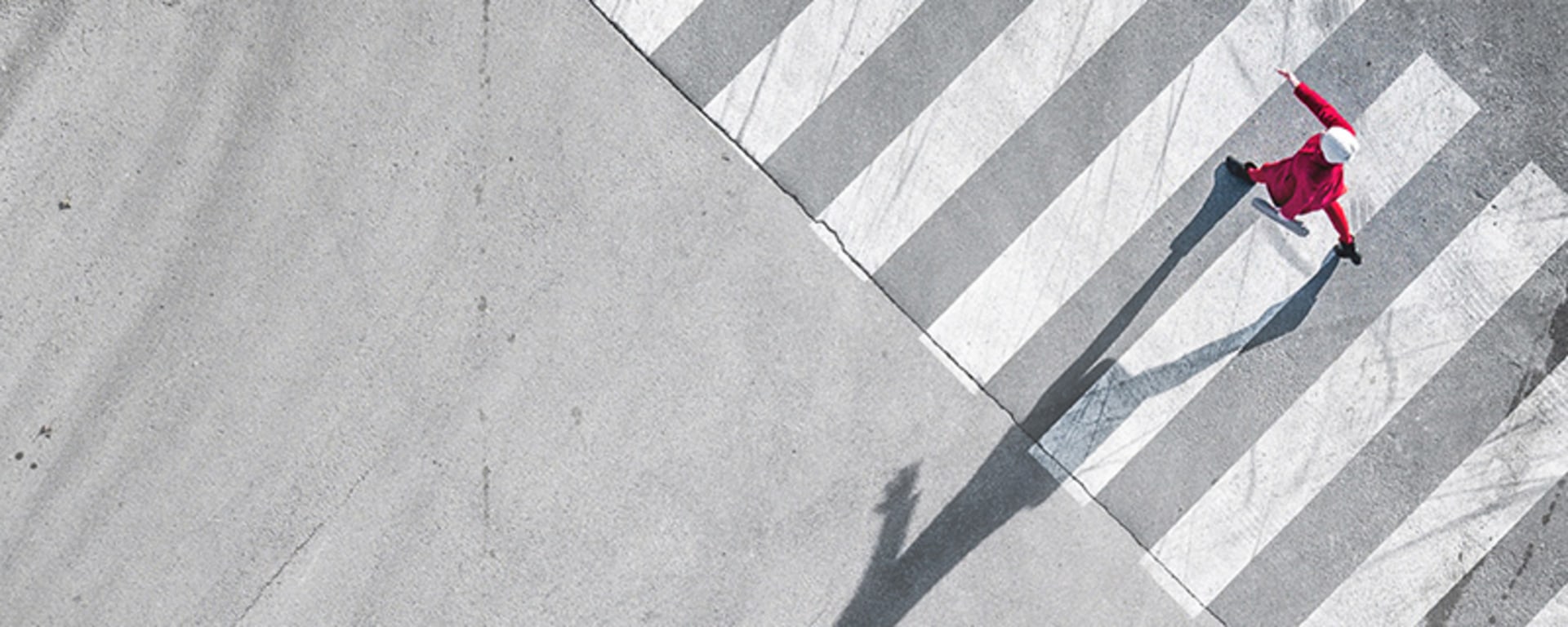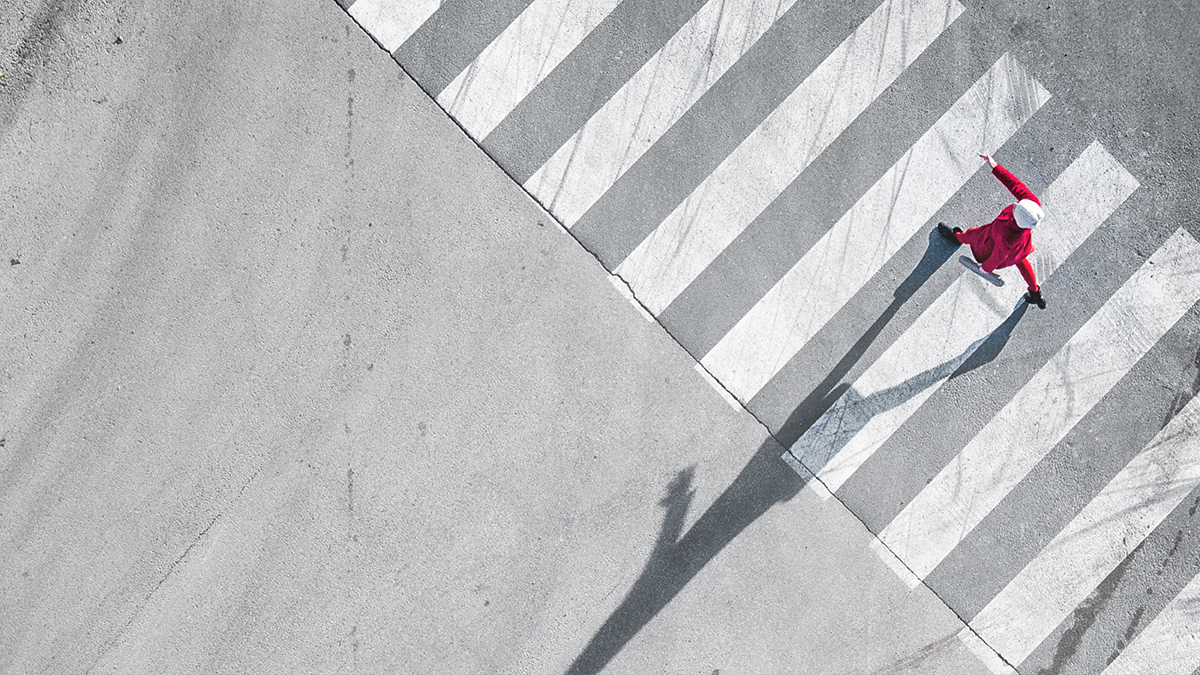Why it pays to break the routine
Many of our “emergency solutions” will turn out to be beneficial. An essay on behavioral economics in Corona times.

Published on 30.04.2020 CEST
Everything – yes, almost everything – that we have taken for granted over the years is now being called into question. Will our great adaptability and inventive, resourceful spirit help us?

“What we are experiencing in these surreal days and weeks is, among other things, a focus on the existential.”
on the insidious virus and the shadows it is casting on our lives.
Dr. Martin Meyer is a publicist and author. From 1992 to 2016 he headed the culture & arts section of the Neue Zürcher Zeitung and now serves, among other posts, as President of the Board of the Swiss Institute of International Studies. His new book “Corona – Erzählung” was published by Kein & Aber at the end of May.
This sentence comes back again and again. Whenever major events of great historical importance have taken place, it makes a regular appearance. Wars, natural disasters or migrations belong in this category, as we all know, but scientific discoveries and social or technological revolutions do as well.
And major pandemics – they certainly do, too.
So that sentence is applicable here. What it is saying is that shocks such as these dramatically change our living conditions. That from now on, measurements will have to be taken with new instruments, or – as in 1945 – we will even declare the arrival of a Zero Hour.
In fact, however, the sentence only applies to a limited extent. Because in spite of such colossal setbacks, human beings are geniuses when it comes to adaptation. That means nothing more than the ability to recognize new things and, quickly or slowly, turn them to our own advantage, all the while continuing to make use of those things that are constant, that already exist. In order to be able to keep going at all, mankind reaches into the inventory of our experiences, our beliefs, our histories. After crises. After disasters. After pandemics.
What does this mean for this pandemic, with the melodious name “Corona”?
To begin with, it means nothing less than the fact that we are actually – and not for the first time, moreover – faced once again with the process of calling almost everything into question that over time we had come to take for granted.
A rip appears in the curtain. Behind it, specters reveal themselves, dancing to a demonic rhythm. And because we have long since been globally networked and, receiving information from around the world, we also witness many terrible things that previously were kept out of our sight. This time, though, we are right there alongside them, in real time.
Globalized real time is primarily a time when we make comparisons. Immediately we begin to speculate whether things could get "that bad" here “with us”. Whether “we” are better prepared, or worse, than “these people” or “those people”. And finally, whether “humanity” itself is at a crossroads.
The voice of reason tells us that the side effects of progress – among which we may include “Corona” – are outcomes that progress itself can (not always, but frequently) tame, if not completely put an end to. Nothing can hold the resourceful spirit back from tirelessly working to improve things, even if ever more massive side effects are among the possible consequences: side effects that, in the worst case, could consume progress itself.
Such an apocalyptic ending is not out of the question.
Up till now, though, it hasn't happened. Not yet, say all those people who are always warning and admonishing us – those critics who are rarely any good at coming up with sustainable feasible alternatives themselves.
Of course, “Corona” may be – must be – taken as a warning, especially if one has to take into consideration, not unrealistically, that viruses of a much more lethal nature could appear. But even then, the rule remains valid: all it takes is science, technology, smart politics and social discipline to stand up to them.
“Corona” is bad. Bad in any event.
But what we are experiencing in these seemingly surreal days and weeks is, among other things, a focus on the existential.
That may sound pathetic. However, it is not. In quarantine, as bad as it can be, one intensifies one’s interior, self-reference. We are finding our way back to ourselves. It may be that we are thinking this or that, reading this or that, or talking on the phone with this or that person, but as a rule we’re doing all these things a little differently than before. Namely, with a more refined ear and level-headed reactions.
A pandemic, as terrible as it is, slows down time.
In our modern, enlightened societies, we live constantly in the whirlwind of acceleration, everything always going faster and faster. Our genius for adaptation is primed and ready for dealing with this state of affairs, but it is usually under constant stress.
Now, with “Corona”, a silence has fallen over the world. The astonishing consequence of this pandemic is that times seem to be returning that in many places had long ago become museum-like. The world in which we are living is shuffling along again, in crab-like fashion.
Looking at the damage caused, once again it is bad. For the economy, it can be fatal. Only a few weeks have gone by so far. And yet: what consequences.
At such times, good counsel is literally priceless. At the same time, it comes as no surprise that armies of experts emerge who – whether on their own or in groups – always know better. Or would have known better.
The philosopher René Descartes described a special set of principles for such situations. He called it a morale par provision. Someone who is lost in the forest doesn’t know which direction to go. So he makes a decision and walks off eagerly.
This applies not only to politics on a grand scale, but also, no less, to everyday life. It is necessary to make decisions even though they can’t fully address all the facets of the issue at hand, sometimes not even address very many of the facets.
However, depending on the way the crisis develops, it must also be permissible to continually revise and adapt these decisions. That is obvious. The person lost in the forest who at last spies a field on the horizon does not suddenly turn around again and go back into the woods to start all over.
Postscript: While I am writing this essay in my home office, which sometimes seems to me like a spaceship, sometimes like an inside-out aquarium, I am confident that we will have mastered this new crisis in the foreseeable future. Indeed, the crisis could have a positive impact on various learning processes. It could deepen our awareness of how to manage time and sustainability as valuable resources. Or to put it another way: people who vigorously learn to take time for what is important will have discovered not only themselves, but also responsibility in the world.
What moves the world, impacts the markets. Discover interesting perspectives that personalities from a wide range of disciplines share with us concerning our post-Corona life. Our investment experts round out the picture with market assessments and macroeconomic analyses.
White paper: “The world upside down” — 6 challenges for investors “after Corona”
Behavioral economics: “Corona is forcing us to experiment”
Economic history: Why it’s worth taking a look into the past – and across cultural divisions
From the feuilleton: “Corona: The demonic dance, in globalized real time”
Who are we? How do we live today? And how will the Coronavirus change our lives? How the future will unfold is preoccupying society more than ever, with engineers, doctors, politicians – each one of us, in fact – seeking answers. This essay on “dancing demons” is one of many contributions that shed light on the theme “Life after Corona” from a new, inspiring perspective. We are publishing them here as part of our series “Impact”.
Published on 30.04.2020 CEST